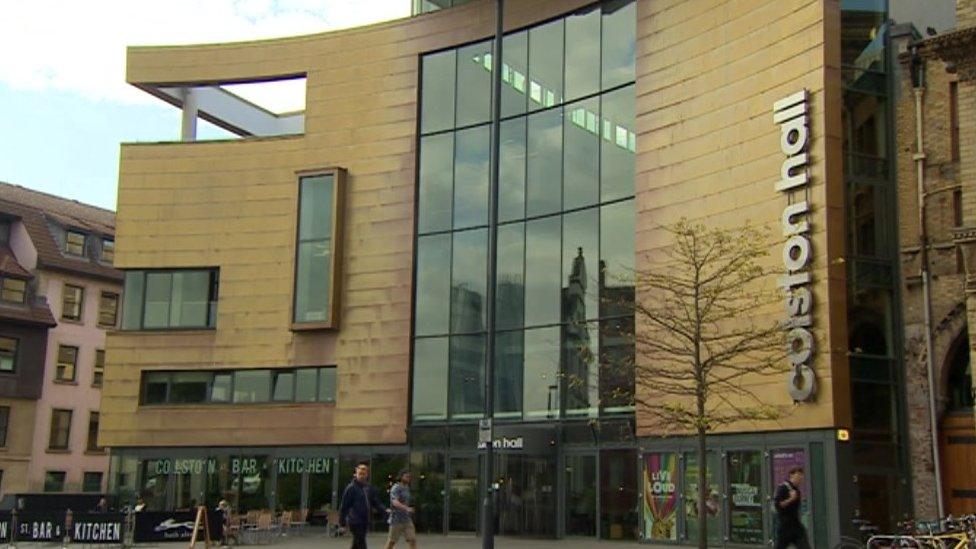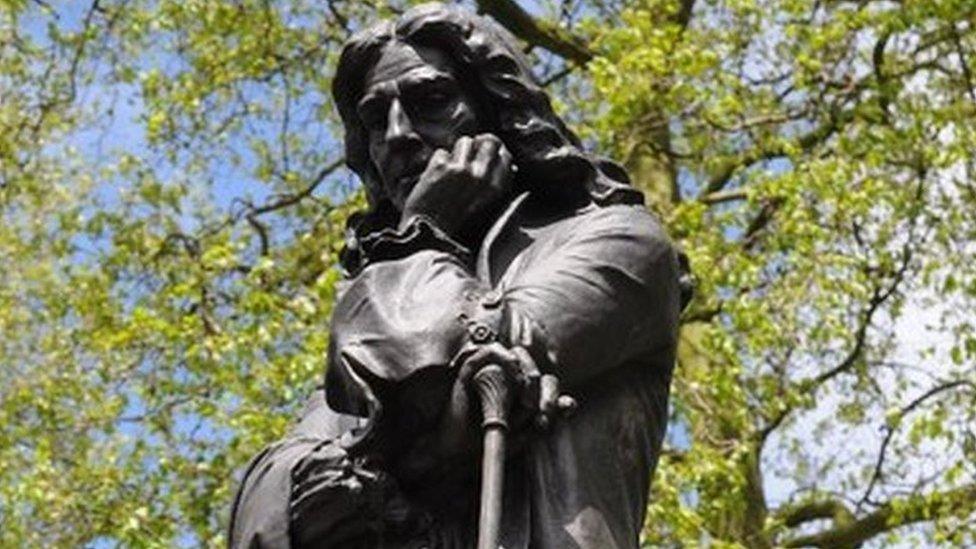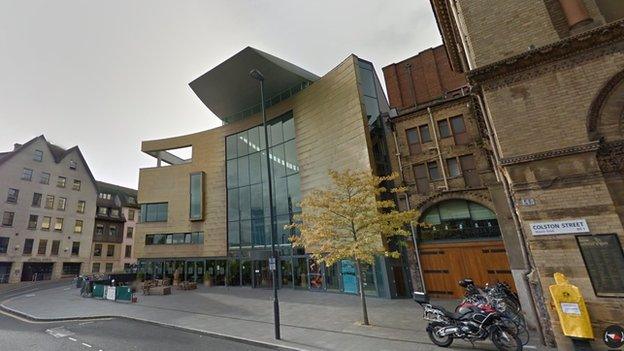Colston Hall: New bid to drop venue 'slave trader name' link
- Published

Colston Hall is undergoing a major revamp and has so far raised £30m of its £45m target
Fresh calls are being made to change the name of Bristol's Colston Hall concert venue which campaigners say is named after a slave trader.
Edward Colston, who lived in Bristol, invested in a slave trade company for 11 years and was an active slave trader.
Green city councillor Cleo Lake said: "It's about moving forward now and I think it's offensive."
Colston Hall maintains that it is named after its address, in Colston Street.
Controversial figure
The trust that runs it has been considering a name change for three years, but no action has been taken so far, sparking a new petition by campaigners.
It also maintains it will review the name as part of the hall's revamp which began in 2014 and will end in 2020, by which time it hopes to have raised another £15m towards its £49m target.
Ms Lake said the venue was "for music, for celebration, for something that should uplift your spirit and your soul" rather than something to named after a controversial figure.
A petition calling for a name change has gathered more than 1,500 names since its launch last month. Campaigners are also planning to stage a protest on Saturday outside Colston Hall.
Katie Finnegan-Clarke, who set up the petition, said: "I think the name should reflect the inspirational people that have lived in Bristol.
"I don't think it's appropriate anymore that Colston should be honoured in this way."
People in Bristol share their views on changing the name of Colston Hall
The venue is trying to raise £49m to fund a major revamp by 2020.
Louise Mitchell, chief executive of Bristol Music Trust, said: "What the building will be called is part of that consideration over the next few months; no decision has been taken.
"We've always said we would bear that in mind when we looked at opening the triumphant new building in 2020."


A statue of Edward Colston in Bristol
Edward Colston (1636-1721)
Colston was born into a prosperous Bristol merchant's family and, although he lived in London for many years, was always closely associated with Bristol
By 1672, he had his own business in London trading in slaves, cloth, wine and sugar. A significant proportion of Colson's wealth came directly or indirectly from the slave trade
In 1680, he became an official of the Royal African Company, which at that time held the monopoly in Britain on slave trading
He donated to schools, churches and hospitals in Bristol, also founding two almshouses and a school
He also lent money to the Bristol corporation and was a city MP for a short time
This bronze statue of Colston in Bristol has an inscription on it which reads, "Erected by citizens of Bristol as a memorial of one of the most virtuous and wise sons of their city". There is no mention of his significant role in the slave trade
Source: BBC History/Nigel Pocock

- Published13 June 2014
